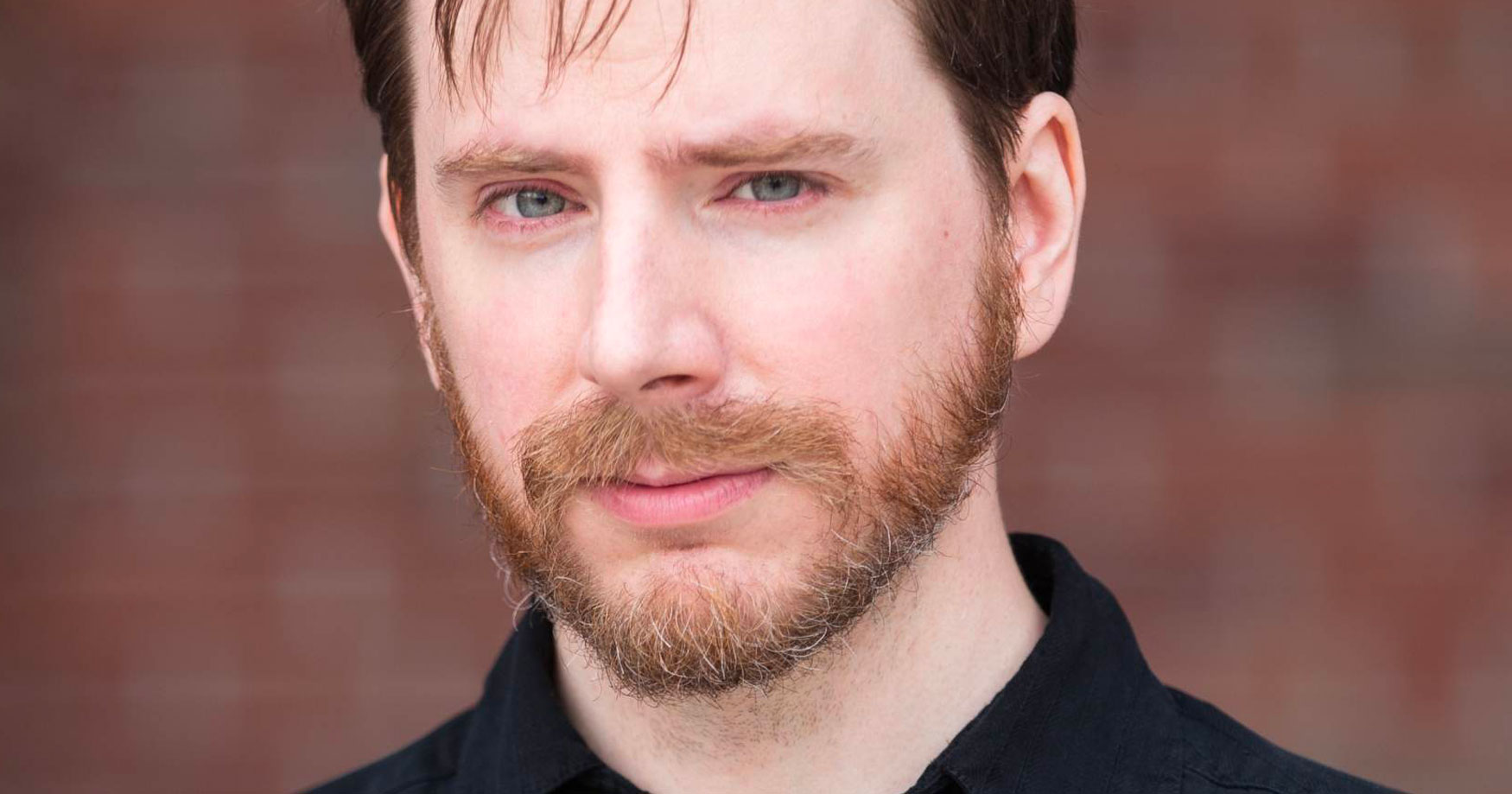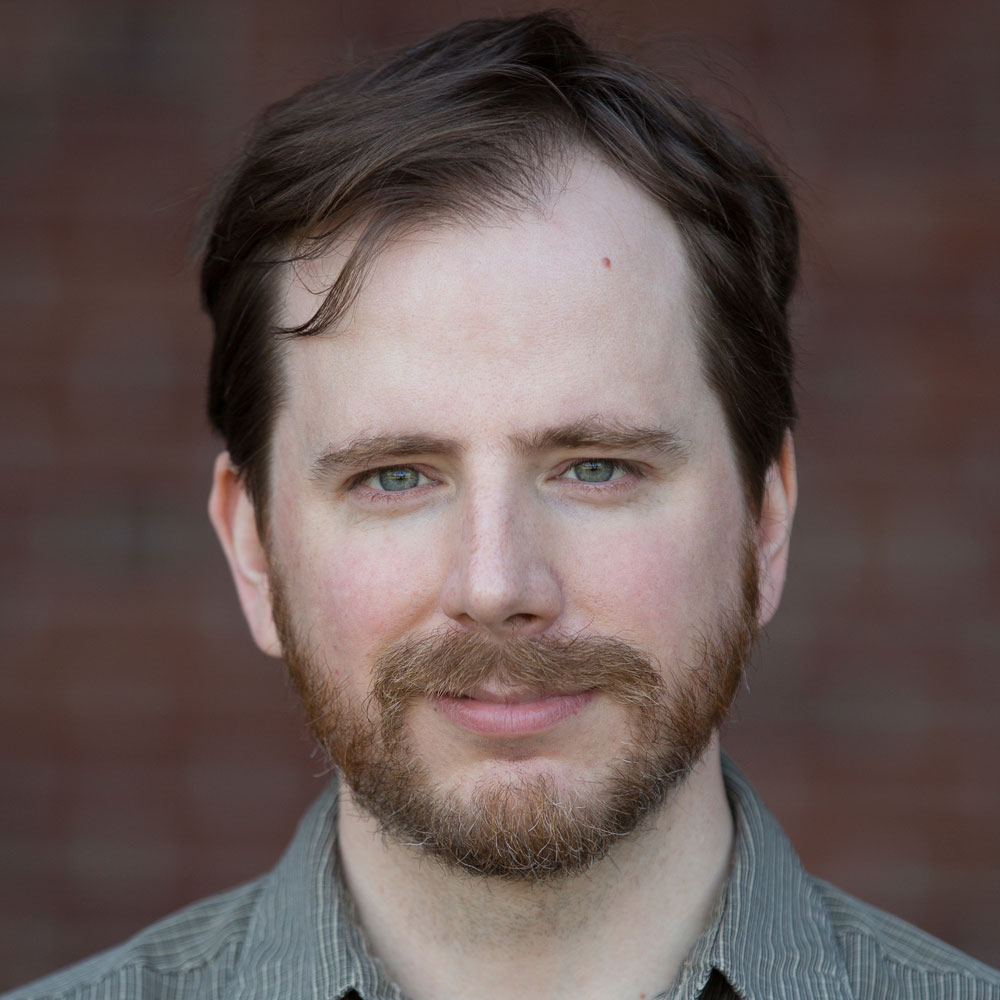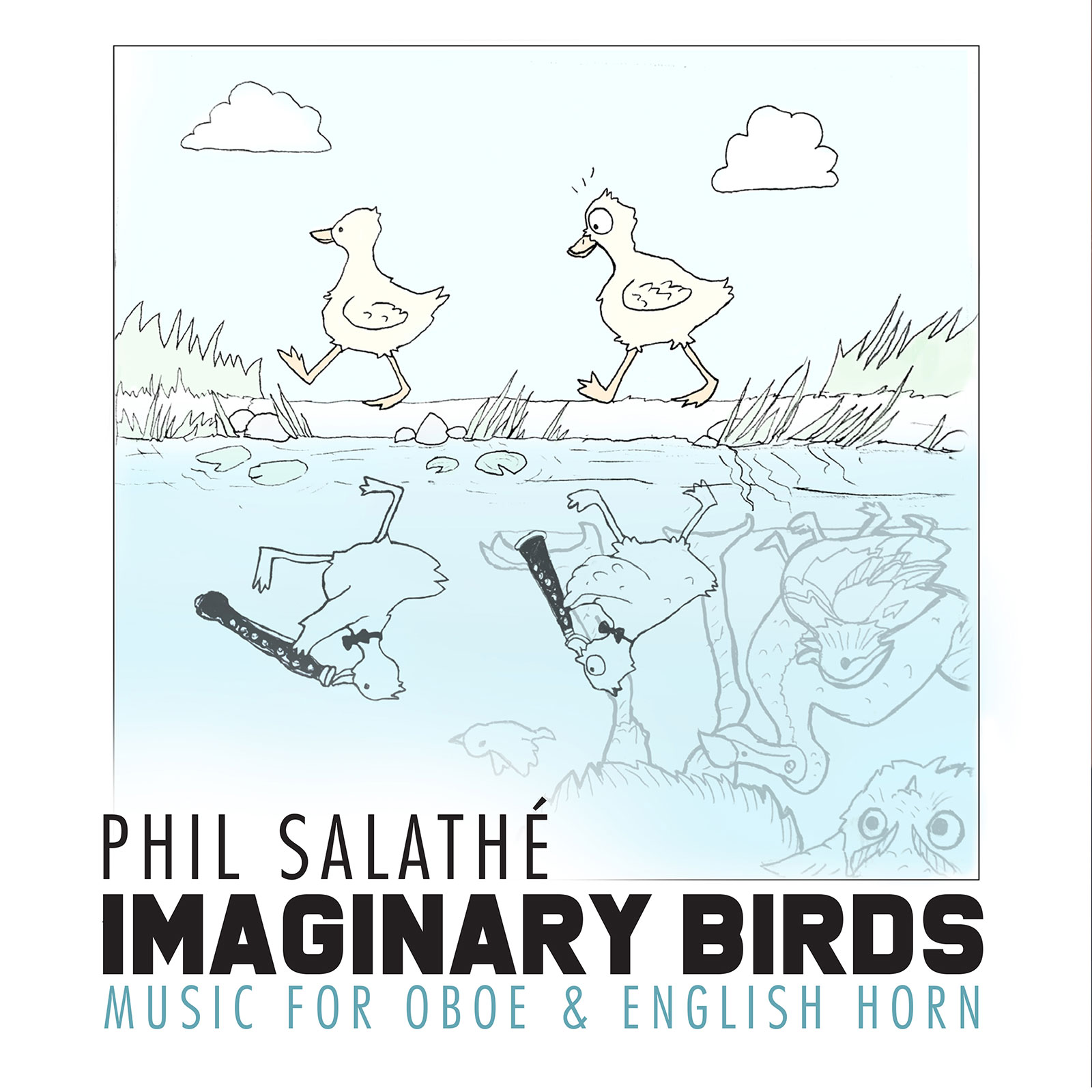
Phil Salathé spent his formative musical years playing jazz trumpet, making homemade musique concrète on an old tape deck, and getting in trouble for surreptitiously composing in chemistry class. His music has been performed in the United States, Canada, South America, Europe, and Asia. It ranges widely in scale and scope, from multi-movement orchestral works to hand-programmed “chiptunes” for independent video game publishers.
He studied composition at Bennington College, the Hartt School, and Stony Brook University (Ph.D., 2014). In January 2016 he joined the faculty at SUNY Potsdam’s Crane School of Music, where he teaches music theory, composition, and aural skills. Outside of music, he enjoys playing chess, learning languages, and exploring the world of offbeat cinema. In 2015 he competed on the television show Jeopardy!, in the course of which he won one episode (and accidentally insulted Alex Trebek’s falsetto).
Today, Phil is our featured artist in “The Inside Story,” a blog series exploring the inner workings and personalities of our artists. Read on to…
Who was your first favorite artist(s) growing up?
That’s a tricky one! I was lucky enough to grow up during the prime years of Sesame Street, which frequently featured composers like Vivaldi and Philip Glass, as well as the remarkable Joe Raposo. When I was six years old, I wore out my LP of Michael Jackson’s Thriller, and later I fell in love with 1960s groups like the Doors and Pink Floyd.
Then, as a teenager I became passionately interested in jazz, including the artists you’d expect like Miles Davis and John Coltrane, plus musicians who recorded for the ECM label like Eberhard Weber, Carla Bley, and Lester Bowie.
To some extent, it was through jazz that I discovered composers like Debussy and Stravinsky – though, truth be told, my father taped R.O. Blechman’s animated version of L’Histoire du Soldat when it was broadcast on PBS in the early 1980s, and I used to watch that all the time with my brother. But I can’t begin to count how many times I listened to La Mer or The Rite of Spring in my last few years of high school. Bartók’s Concerto for Orchestra was another favorite. I think I’ve always been drawn to rhythmically and harmonically adventurous music.
When did you realize that you wanted to be an artist?
I don’t think I ever made a decision to become a musician – it feels as though music has always been central in my life, and ever-present in my family. I grew up listening to my youngest sister practice Chopin, and my father is a guitarist. My grandfather Gilbert Patten (whom I sadly never met) was a semi-professional musician, and had a huge, rich bass voice that we’re lucky enough to have preserved on some 78 RPM records.
Meanwhile I was into programming as a kid, and used to write BASIC programs that generated music and sound effects for our little Radio Shack computer. (I still have them on a floppy disk somewhere.) For a while, that’s as far as it went.
I think it was jazz that really led me to take music seriously and consider it as a career. When I heard what people like John Coltrane and Jaco Pastorius were capable of doing, it completely changed my sense of what was possible. And engaging those recordings in a serious way – listening to them over and over again until I felt I understood what was going on – was great ear training!
What was your most unusual performance, or the most embarrassing thing that happened to you during a performance?
It wasn’t one of my own pieces, but I remember playing a brass quartet by Martín Loyato, for two slide trumpets and two trombones. Slide trumpet is a nightmare to play in tune, but Martín’s piece was gestural and had a lot of improvisation, so that wasn’t the issue. Rather, the problem came when I had to play a big, raucous, shaking glissando – a solo, no less – that used the whole length of the slide.
I went at it with gusto – and promptly pulled the slide right off the tube! Fortunately I didn’t send it flying, but managed to hold onto it. So, after a split-second pause, I simply said “Pardon me!”, stuck the slide back on, and resumed playing. What else could I do?
What is your guilty pleasure?
Without meaning to be difficult, I don’t really relate to the idea of guilty pleasures. The way I see it, every form of art has its time, place, and purpose, and at the very least, tells us something about the world it comes from. The only way I can imagine feeling guilty about enjoying something is if it seemed to advocate for a worldview I found reprehensible or untruthful – but then I probably wouldn’t enjoy it, right?
That said, I love watching movies that, through incompetence or indifference, break every rule of effective storytelling and character development. And I love films that leave you uncertain as to whether they’re actually serious. Vampire’s Kiss, with Nicolas Cage, is a great example: I’ve seen it at least four times, and I’m still not sure whether his over-the-top performance is utterly brilliant or a colossal (and unintentionally hilarious) act of misjudgment. Maybe it doesn’t matter.
I also love watching old game shows on TV, especially shows from the 1970s and early 1980s. It can be lethal for productivity, but it’s so seductive – like stepping into a time machine.
If you could make a living at any job in the world, what would that job be?
Frankly, I think teaching at the university level is a pretty wonderful gig, especially teaching composition: helping young composers find their voice, getting to hear their new works, and pointing them to great works of art that will illuminate their path – what could be more rewarding?
But if I had to give that up, I wouldn’t mind being an arts writer of some sort, and writing about music, film, and literature. And if I couldn’t do that, or anything else in the arts or humanities? I’d probably be OK with anything that offered interesting challenges, made me feel that I was making the world a better place in some small way – and didn’t require me to drive large vehicles or catch fast-moving objects. (My spatial relations skills are nil.)
If you could spend creative time anywhere in the world, where would it be and why?
My wife and I spent our honeymoon in the Pacific Northwest, which was often breathtaking (especially Idaho and eastern Oregon), and I can imagine returning there to write, hike, and explore. I’d also love to spend time in Madagascar someday.
If you could instantly have expertise performing one instrument, what instrument would that be?
On paper I should say piano, because it would come in handy in so many ways. But even if I had tremendous physical chops and could play the world’s cleanest scales, I don’t know that I’m mentally capable of the feats of sight-reading I’ve seen from folks like Allen Shawn (who was also my first composition teacher, at Bennington College). I just don’t parallel-process visual information with that kind of fluency; I’m a more serial thinker.
I’d gladly settle for a more “realistic” goal: I’d love to be able to play soprano sax like Wayne Shorter.
What was your favorite musical moment on the album?
I’d probably pick Part IV of The Wood Between the Worlds. I really enjoy the vertiginous feeling I get when, in highly rhythmic music, I’m suddenly unsure of where the downbeat is, either because the meter is ever-changing or because the music admits of multiple metrical readings.
The cello’s ostinato gives me that feeling – even though I wrote it! – and I love the way Katie’s pizzicato sounds, rich and woody. As the other instruments gradually come in, it creates these interlocking layers that I can’t quite describe…I think Peter Winkler, one of my teachers at Stony Brook, called the whole thing a “groove,” which is exactly right.
What does this album mean to you personally?
First and foremost I see IMAGINARY BIRDS as a celebration of my longtime collaboration with Charles Huang and Ling-Fei Kang, who have been such wonderful advocates for my work (and for new music in general). It’s a chance to share the music we’ve made with the world, and my hope is that the album feels a little bit like a concert, complete with an encore at the end.
Beyond that, I think every composer’s first album is a unique moment in their career, just like their first solo recital or concert. It’s inherently a kind of announcement – a chance to say “I’m here, and this is (some of) what I do.”
It seems to me that writing a piece is a bit like raising a child (like many composers, I feel a vague sense of guilt toward the “orphaned” ideas and fragments I haven’t used yet). When you release a recording, it’s as if the piece has finally reached adulthood. You’re sending it out into the world to live its own life independent of you, and without your mediating presence by its side at all times. So: hello world, meet five of my kids?
Is there a specific feeling that you would like communicated to audiences in this work?
My hope is that the body of work on this album communicates a wide range of feelings – from comic to tragic, from violent to serene.
I’ve been lucky to work with a lot of wonderful teachers, and perhaps the one whose impact on me was most transformative is Stephen Siegel, my friend and mentor. Stephen once said that “All art is memorial” – meaning that if you have a compositional idea, but do nothing with it, that image soon vanishes. The only way to make its presence more lasting is to fix that idea in some tangible form, and share it with others.
I suppose if one thing unites a lot of my music, it’s the desire both to communicate a sense of loss, and to transcend it. In a relatively light piece like Mandarin Ducks, that’s probably less apparent; in The Heart That Loves But Once, it’s more prominent.
The nicest thing of all would be if some young musician out there heard something on this album that got him or her excited about music. Every piece is an act of generous communication across time and between generations; if my work becomes a lasting part of that conversation, it’d be an honor.

Dr. Phil Salathé spent his formative musical years playing jazz trumpet, making homemade musique concrète on an old tape deck, and getting in trouble for surreptitiously composing in chemistry class. His music has been performed in the United States, Canada, South America, Europe, and Asia. It ranges widely in scale and scope, from multi-movement orchestral works to hand-programmed "chiptunes" for independent video game publishers.

